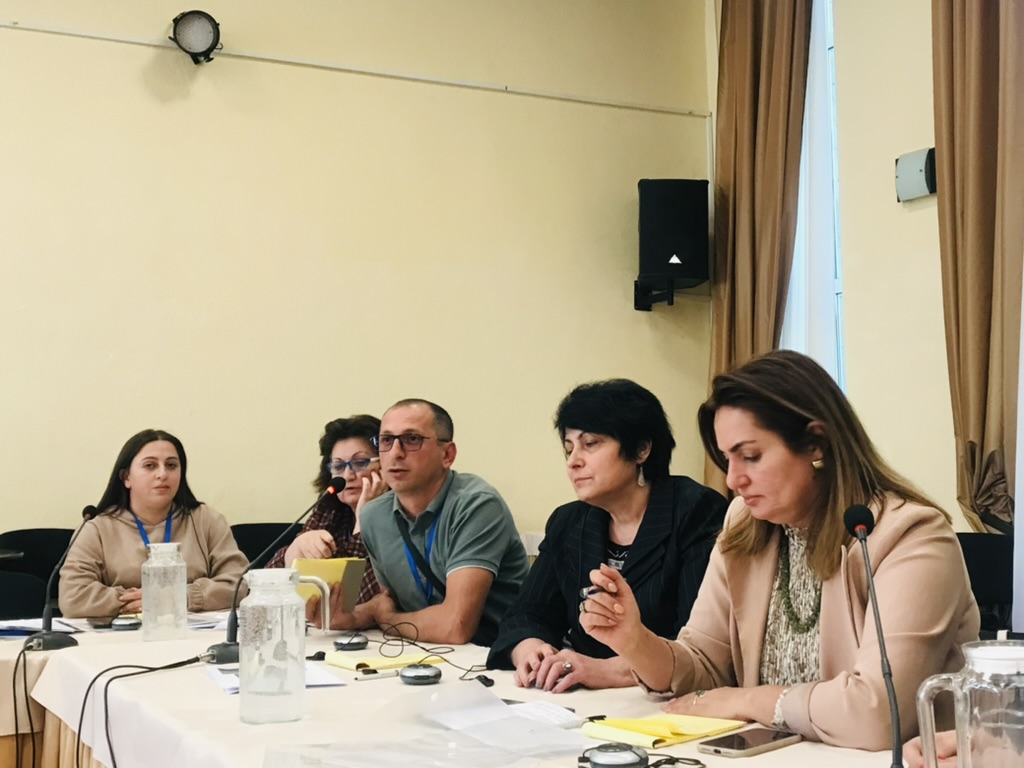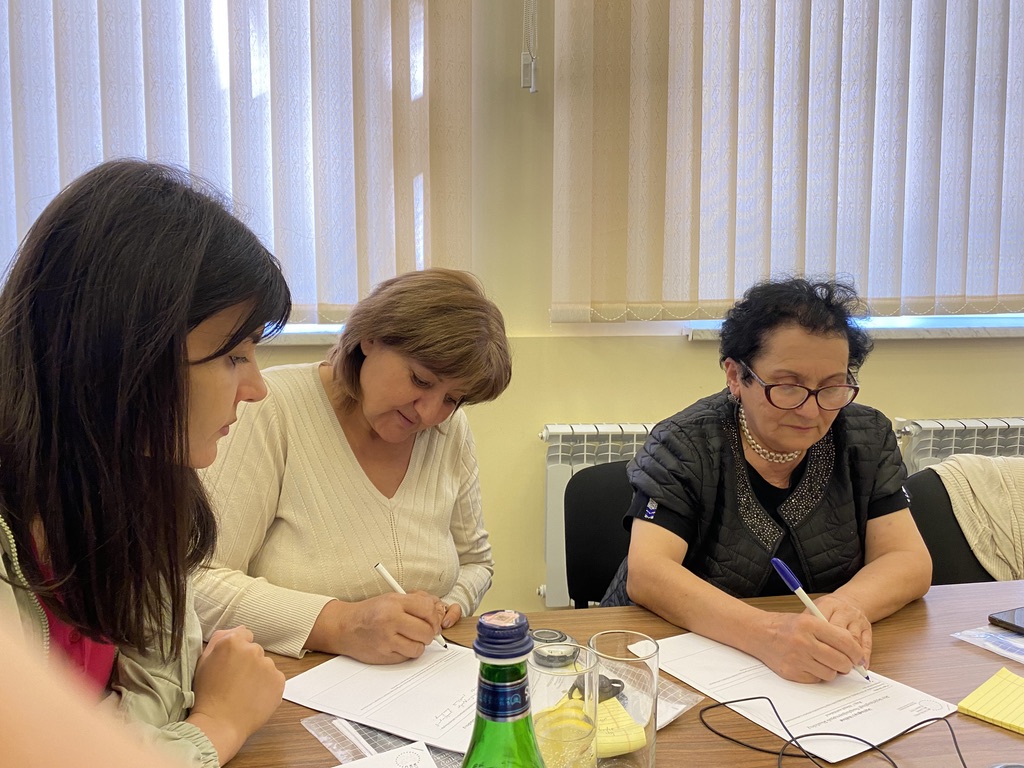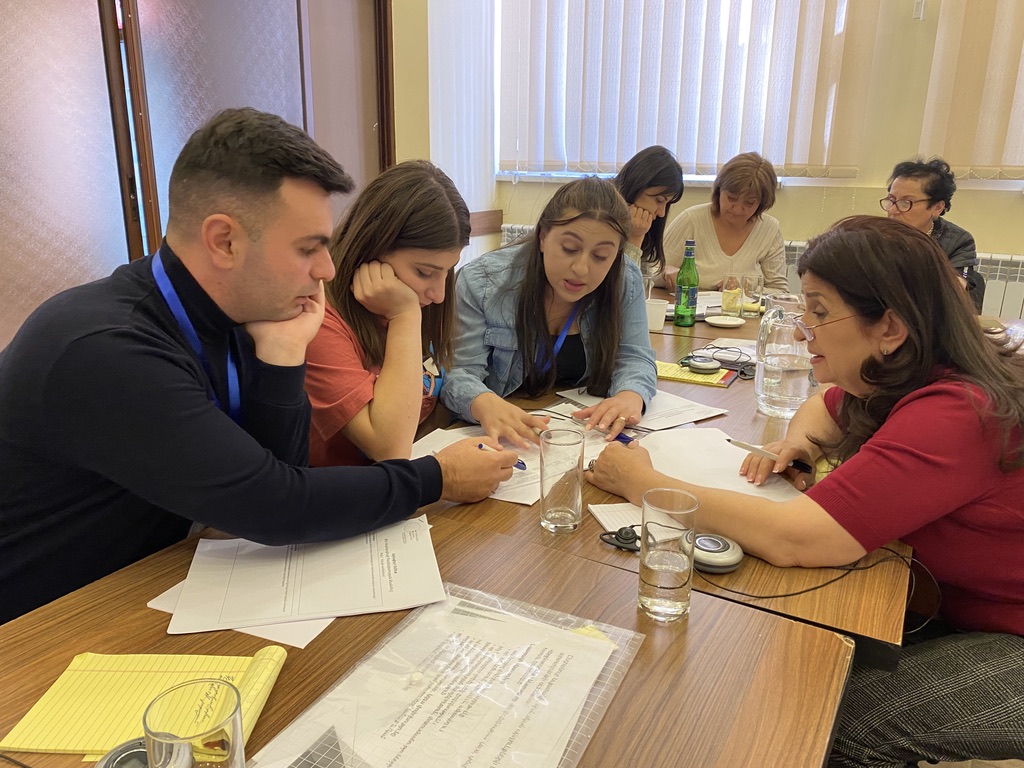On September 27-30, 2022, within the framework of Juremonia project (funded by the EU ) was conducted a four-day training course with the coaching of international experts. The direct beneficiaries of the training were 40 representatives of about 20 non-governmental organizations of the Republic of Armenia. Before the start of the trainings, the coordinating body of the project (the Netherlands Helsinki Committee, Penal Reform International, Social Justice NGO, Civil Society Institute NGO) had designed and developed the complete list of goals and tasks of the trainings, requirements, organizational and methodical characteristics, results of the evaluation. In order to organize the trainings more objectively, effectively and target-oriented, the specialists of the Social Justice NGO had developed a needs-assessment questionnaire and the inclusion of the participants (lawyers, psychologists, social workers, trainers, experts, heads of the organization, analysts, legal advisors) in the trainings had been done based on the analysis of that tool.
The trainings have been conducted in 3 directions:
- Penitentiary and Probation sector reforms (trainer: Mr. Rob Allen, moderators: Ms. Tsira Chanturia, Arshak Gasparyan),
- Judicial and Anti-Corruption reforms (trainer: Ms. Lydeke Schakel, moderator: Artak Kirakosyan)
- Police reforms (trainer: Ms.Aïcha Chaghouani, moderator: Ms. Hester van Omeren)
The main goal of the trainings was to transfer such skills to the representatives of the involved NGOs, thanks to which they will be able to:
- develop data collection methods
- collect, manage and analyze sector monitoring data,
- create a sectoral monitoring system,
- analyze national and international documents in the context of reforms,
- predict expected results and make recommendations among decision makers,
- define a common goal, create a coalition and highlight the process of developing a joint strategy for advocacy,
- make changes using stakeholder mapping, policy reform facilitation methods,
- use the knowledge obtained to develop projects, apply for small grant programs and implement them.
The topics presented during the trainings were reconstructed and expanded through team work, quizzes and presentations. The general picture of the opinions emphasized after the trainings is as follows:
The participants reflection on the achievements: increased motivation for the work to be done in the corresponding sector, increase in the evaluation of own strengths and abilities, effectiveness of group activities, possibility of contacts with sector experts, enabling the consolidation of civil society organizations around a common idea, the opportunity to study strategies highlighting the importance of advocacy work, the ability to use monitoring data in the process of policy development, the opportunity to learn the international norms, the need to develop communication skills.
Participants expect/recommend: More opportunities to participate in such trainings, organization of similar courses in the future, need to study the experience of other countries, a more comprehensive study of the current situation in RA by experts, and the need of easy presentation of terminology.
The link of the workshop photos: https://www.facebook.com/100064338683619/posts/pfbid02xjkt58XALPqBDJxXSQdXNc5NGCCaeLLxXEFpEFRVJWzTu2JdWd2NNsbyzZG12M9tl/?app=fbl







